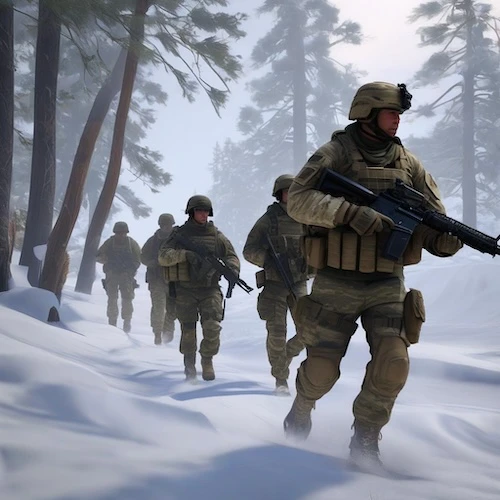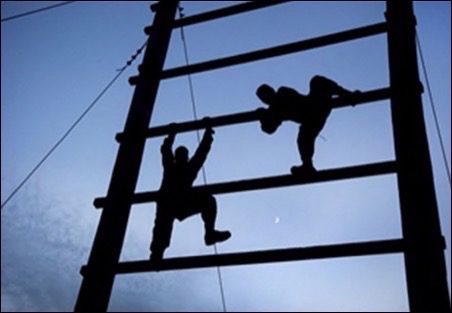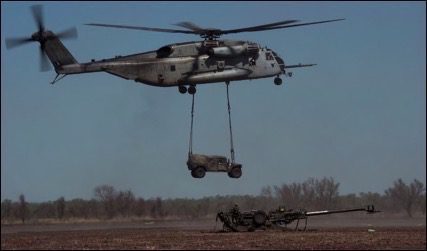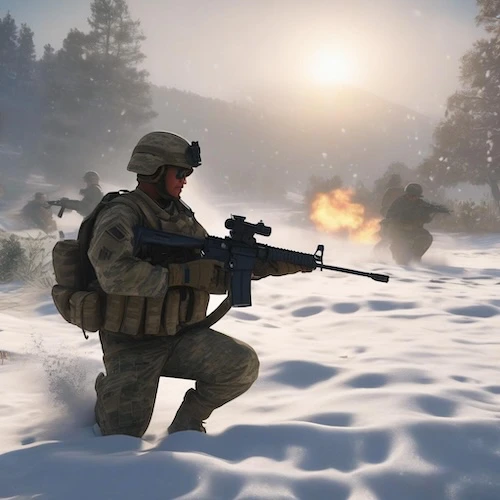Aggressive Fort Wainwright Military Defense Attorneys
Stationed at Fort Wainwright, Alaska? Facing a court-martial, UCMJ action, Administrative Separation Board, or other Adverse Administrative Action? Call our experienced Fort Wainwright military defense lawyers at 1-800-921-8607 for a free consultation.
Facing Military Justice at Fort Wainwright: Why You Need a Civilian Defense Lawyer
 Fort Wainwright, Alaska’s vast, icy expanse, is vital to national defense. Yet, for military personnel stationed there, the isolation and unique challenges can intensify the anxiety of facing a UCMJ investigation, court-martial, or administrative separation. If you find yourself in this situation, securing the expertise of a Fort Wainwright military defense lawyer is crucial for protecting your rights, career, and future.
Fort Wainwright, Alaska’s vast, icy expanse, is vital to national defense. Yet, for military personnel stationed there, the isolation and unique challenges can intensify the anxiety of facing a UCMJ investigation, court-martial, or administrative separation. If you find yourself in this situation, securing the expertise of a Fort Wainwright military defense lawyer is crucial for protecting your rights, career, and future.
Why Civilian Over Military Counsel?
While the military provides legal counsel through the JAG Corps, there are distinct advantages to choosing an experienced civilian military defense lawyer:
- Independence and Objectivity: Civilian lawyers are not part of the military chain of command and can provide unbiased, zealous representation without concerns about career repercussions.
- Specialized Expertise: Alaska civilian defense lawyers often focus exclusively on military law, possessing in-depth knowledge of the UCMJ, court-martial procedures, and defense strategies.
- Resources and Network: Many civilian Fort Wainwright military defense lawyers have extensive resources and networks of investigators and expert witnesses who can bolster your defense.
- Track Record: Reputable civilian Fort Wainwright military defense lawyers often have a proven track record of successful outcomes in complex military cases.
Call Our Fort Wainwright, AK Military Defense Attorneys at 1-800-921-8607
Unique Challenges at Fort Wainwright:
The remote location of Fort Wainwright presents unique challenges that underscore the need for a local, experienced advocate:
- Limited Resources: Access to legal resources and specialized military law expertise may be more limited in Alaska.
- Jurisdictional Complexities: Navigating the intersection of military and Alaskan state laws can be intricate.
- Logistical Hurdles: The vastness of Alaska and harsh weather can create delays and logistical issues for out-of-state lawyers.
- Cultural Sensitivity: Understanding the Alaskan legal and cultural context is crucial for effective communication and building rapport with local officials.
Fort Wainwright Military Defense Lawyers: Your Key to Success
A civilian lawyer specializing in military law in Alaska can offer:
- In-depth UCMJ Knowledge: A thorough understanding of the UCMJ and its specific applications in Alaska.
- Strategic Defense: A well-crafted defense strategy tailored to your unique circumstances and the Alaskan legal landscape.
- Local Courtroom Experience: Familiarity with local judges, prosecutors, and court procedures, giving you an edge in the courtroom.
- Access to Resources: Connections to local investigators, expert witnesses, and support services for military personnel in Alaska.
- Dedicated Advocacy: Unwavering commitment to protecting your rights and achieving the best possible outcome.
Don’t Face Military Justice Alone
Whether you’re under investigation, facing a court-martial, or considering an administrative separation, the stakes are high. The consequences can be devastating, including:
- Loss of Rank and Pay: Reduction in rank can lead to a significant loss of income and benefits.
- Incarceration: A court-martial conviction can result in imprisonment, even for minor offenses.
- Dishonorable Discharge: A dishonorable discharge can carry lifelong consequences, affecting future employment opportunities and veteran benefits.
Fort Wainwright military defense lawyers can provide the expertise, support, and advocacy you need to navigate this challenging terrain. They can help you:
- Understand Your Rights: Explain your legal options and protect your rights.
- Gather Evidence: Conduct thorough investigations and gather evidence to strengthen your defense.
- Challenge the Charges: Identify weaknesses in the prosecution’s case and challenge the validity of the charges.
- Negotiate Plea Agreements: If appropriate, negotiate with the prosecution for a reduced charge or sentence.
- Represent You in Court: Advocate for you forcefully in court and protect your interests.
Remember, early intervention is key. The sooner you engage Fort Wainwright military defense lawyers, the better equipped you’ll be to protect your rights and future.
Don’t leave your fate to chance. Contact a qualified Fort Wainwright military defense lawyer today and ensure you have the strongest possible defense. Your career, reputation, and future may depend on it.
Why Choose Civilian Over Military Counsel?
While the military provides free legal counsel through the JAG Corps, there are compelling reasons why civilian Fort Wainwright military defense lawyers lawyer might offer superior representation and advantages for your case.
- Independence and Unbiased Advocacy:
- No Chain of Command Influence: Civilian Fort Wainwright military defense lawyers operate independently of the military chain of command. They are not concerned about career repercussions or internal pressures that might influence military counsel.
- Unwavering Loyalty: Civilian lawyers’ sole loyalty is to their client, allowing them to pursue the most aggressive defense strategy without hesitation.
- Objectivity and Unbiased Advice: Fort Wainwright military defense lawyers can provide objective advice free from internal military pressures, even if it means challenging the military’s position.
- Specialized Expertise and Experience:
- Focus on Military Law: Many civilian Fort Wainwright military defense lawyers specialize exclusively in military law, possessing a deep understanding of the UCMJ, court-martial procedures, and nuances of military justice.
- Extensive Trial Experience: Civilian lawyers often have a broader range of experience handling complex military cases, including those involving unique legal issues specific to Alaska.
- National Reputation: Some civilian Fort Wainwright military defense lawyers have national reputations for their expertise in military law and have successfully defended numerous high-profile cases.
- Resources and Network:
- Investigative Resources: Civilian Fort Wainwright military defense lawyers often have the financial resources to conduct thorough investigations, hire expert witnesses, and gather evidence that might be crucial for your defense.
- Legal Support Staff: Civilian lawyers often have a team of paralegals, investigators, and support staff dedicated to your case, ensuring no detail is overlooked.
- Network of Experts: They have access to experts in various fields, such as forensics, mental health, or ballistics, who can provide critical testimony and analysis.
- Proven Track Record:
- Success Rate: Reputable civilian Fort Wainwright military defense lawyers often have a history of successfully defending military clients, achieving acquittals, reduced charges, or lighter sentences.
- Case Results: They can provide references and case studies demonstrating their expertise and effectiveness in similar cases.
- Client Testimonials: Past clients can offer insights into the lawyer’s professionalism, dedication, and communication style.
- Availability and Dedication:
- Time and Attention: Civilian Fort Wainwright military defense lawyers typically have smaller caseloads than military counsel, allowing them to dedicate more time and attention to your case.
- Personalized Service: They can offer more individualized attention, tailoring their approach to your needs and concerns.
- Accessibility: They are often more readily available for consultations, meetings, and communication outside normal business hours.
Hiring Fort Wainwright Military Defense Lawyers
While JAG attorneys are dedicated and capable, their resources may be limited, and they may face conflicts of interest due to their position within the military. An experienced civilian military defense lawyer can provide extra protection, ensuring your rights are fully defended and your future is secured.
Remember, your choice of legal representation can profoundly impact the outcome of your case. Consider the benefits of hiring civilian Fort Wainwright military defense lawyers, especially if facing serious charges or a complex legal situation. Your career, reputation, and future may depend on it.
Fictional UCMJ Offenses with Alaska-Specific Scenarios and Defense Strategies
- Unauthorized Operation of a Snowmobile (Article 92 Violation):
- Fact Pattern: A soldier stationed at Fort Wainwright borrows a snowmobile from a friend without authorization and gets into an accident while joyriding off-base during a blizzard.
- Defense Strategy: Fort Wainwright military defense lawyers could argue that the soldier had implied consent from the owner, lacked the intent to deprive the snowmobile owner permanently, and that the blizzard created an emergency necessitating its use.
- Improper Disposal of Hazardous Materials (Article 92 Violation):
- Fact Pattern: A Fort Wainwright soldier, unfamiliar with Alaska’s strict environmental regulations, disposes of hazardous waste from a personal project into a nearby stream, impacting local wildlife.
- Defense Strategy: Fort Wainwright military defense lawyers could argue a lack of knowledge or understanding of Alaska’s specific environmental laws, potential negligence on the command for not providing adequate training, or challenge the evidence linking the soldier to improper disposal.
- Unauthorized Hunting of Protected Wildlife (Article 134 Violation):
- Fact Pattern: A soldier at Fort Wainwright, eager to experience Alaskan hunting, illegally harvests a protected moose out of season, claiming ignorance of local hunting regulations.
- Defense Strategy: Fort Wainwright military defense lawyers could emphasize the soldier’s lack of familiarity with Alaska’s complex hunting laws, potentially raising questions about the adequacy of cultural and legal training provided to newly arrived personnel.
- Disorderly Conduct at an Ice Fishing Tournament (Article 134 Violation):
- Fact Pattern: A soldier, intoxicated at a popular ice fishing tournament near Fort Wainwright, gets into a brawl with local civilians, leading to injuries and property damage.
- Defense Strategy: Fort Wainwright military defense lawyers could argue that the soldier’s intoxication was involuntary or explore the possibility of self-defense if the soldier was provoked or attacked first. Additionally, they could investigate potential biases against military personnel in the local community.
- Failure to Report Extreme Weather Conditions (Article 92 Violation):
- Fact Pattern: A soldier leading a winter training exercise at Fort Wainwright fails to adequately assess and report deteriorating weather conditions, resulting in frostbite injuries for several participants.
- Defense Strategy: Fort Wainwright military defense lawyers could argue that the soldier acted in good faith, relying on faulty weather reports, or that the injuries were due to unforeseeable circumstances beyond the soldier’s control. They could also challenge the chain of command’s oversight and decision-making regarding the training exercise.
- Unauthorized Use of Military Equipment for Recreational Purposes (Article 92 Violation):
- Fact Pattern: A soldier at Fort Wainwright takes a military snowcat for an unauthorized off-road joyride, damaging the vehicle and nearby terrain.
- Defense Strategy: Fort Wainwright military defense lawyers could investigate whether the soldier had implied permission from a superior, highlight any mitigating circumstances (e.g., an emergency situation), and argue for alternative disciplinary measures instead of a court martial.
- Negligent Discharge of a Firearm During a Northern Lights Viewing (Article 134 Violation):
- Fact Pattern: A soldier at Fort Wainwright, excited to see the Northern Lights, accidentally discharges their personal firearm while camping with friends, causing minor injuries to another camper.
- Defense Strategy: Fort Wainwright military defense lawyers could argue that the discharge was accidental, highlighting the soldier’s safety training and responsible gun ownership practices. They could also explore the possibility of faulty equipment or unforeseen circumstances contributing to the incident.
- Disobeying a Direct Order to Stay Off Thin Ice (Article 92 Violation):
- Fact Pattern: A soldier ignores a commander’s order to avoid a frozen lake due to thin ice conditions and falls through, requiring a costly rescue operation.
- Defense Strategy: Fort Wainwright military defense lawyers could investigate whether the soldier received adequate warning about the ice conditions, challenge the clarity or reasonableness of the order, or explore potential mitigating factors such as the soldier’s inexperience with Alaskan winters.
- Fraternization with an Alaskan Native Leader (Article 134 Violation):
- Fact Pattern: A soldier develops a close personal relationship with a local Alaskan Native leader, potentially compromising the military’s relationship with the indigenous community.
- Defense Strategy: Fort Wainwright military defense lawyers could argue that the relationship was purely platonic and focused on cultural exchange or community outreach. They could also challenge that the relationship negatively impacted the military’s mission or reputation.
- Mishandling Classified Information During a Joint Training Exercise (Article 92 Violation):
- Fact Pattern: A soldier participating in a joint training exercise with Canadian forces in Alaska accidentally shares classified information with unauthorized personnel.
- Defense Strategy: Fort Wainwright military defense lawyers could investigate the disclosure’s circumstances, assess the potential damage caused, and argue for leniency based on the soldier’s otherwise exemplary service record and lack of malicious intent. They could also examine whether adequate security protocols were in place during the exercise.
These fictional scenarios highlight the diverse legal challenges that military personnel at Fort Wainwright might face. In each case, experienced civilian Fort Wainwright military defense lawyers can provide invaluable expertise, tailoring their defense strategies to the unique circumstances and local legal context.
When You Need an Army Court Martial Lawyer in Fort Wainwright
Fort Wainwright Military Defense Lawyers
The experienced Fort Wainwright military defense lawyers at Gonzalez & Waddington have gained a reputation for defending service members at Army installations worldwide. Suppose you are stationed at Fort Wainwright and are under investigation for a military offense.
In that case, having the most experienced military criminal defense attorney can be the difference between spending decades in prison versus winning your case or redeeming your career. Our military attorneys represent Fort Wainwright Soldiers in both UCMJ and administrative matters, including representing service members suspected of sexual assault, theft, and other offenses under the UCMJ.
Our military defense lawyers commonly fight false accusations of Article 120 UCMJ, Sexual Assault.
Alaska Military Lawyer
Unlike most civilian criminal defense attorneys or your assigned Army lawyer, pleading guilty is not something we commonly do. Our attorneys compel the US Army to prove their case. We take almost every case to trial and fight the allegations before a military jury.
Our Army court-martial outcomes speak for themselves. The accused Soldier and his or her desired outcome are our principal concerns. Our court-martial defense lawyers maintain smaller caseloads than the usual appointed US Army defense lawyers so that we can focus on every trial separately.
Your trial will not be outsourced to a third party, and we will not pressure you into a guilty plea at the last minute. Our military defense attorneys have successfully fought Army court-martial and administrative separation (ADSEP) cases in the United States and globally.
Fort Wainwright Court Martial Lawyers
Our high-powered Army court-martial lawyers will use our experience to defend your court-martial or ADSEP case at Fort Wainwright.
Call today to speak with an aggressive military attorney.
Service members stationed at Fort Wainwright deserve the best military defense attorneys to defend them at their court martial or ADSEP proceeding.
If you or a family member are stationed at Fort Wainwright and are suspected of a military offense such as sexual assault or if you are facing an administrative separation, Article 15, show cause board, letter of reprimand or GOMOR, then contact our court martial attorneys today.
Fort Wainwright, Alaska Military Defense Attorneys
Brief Background of Fort Wainwright
 Fort Wainwright is a post set up by the United States Army next to Fairbanks in the state of Alaska. The military base has played an important role since 1978, as it has investigated and cleaned up the water and soil contamination caused by landfills, drum burial sites, fuel terminals, underground storage tanks, coal storage yards, open detonation areas, and fire training pits.
Fort Wainwright is a post set up by the United States Army next to Fairbanks in the state of Alaska. The military base has played an important role since 1978, as it has investigated and cleaned up the water and soil contamination caused by landfills, drum burial sites, fuel terminals, underground storage tanks, coal storage yards, open detonation areas, and fire training pits.
The base was first set up in 1939 and was then known as Ladd Field, belonging to the U.S. Army Air Corps. In 1947, it became the cold weather station for testing aircraft in arctic and cold conditions for the U.S. Air Force. The Army officially gained control of the region in 1961 and named it after General Jonathan Wainwright for his bravery and service in the Second World War.
It has been home to the 6th Infantry Division, 172nd Infantry Brigade, Task Force 49 (an aviation brigade designed to provide logistical air support to the U.S. Army). The Bassett Army Community Hospital and the Alaska Fire Service (of the Bureau of Land Management) are also located here.
Present Day Goings on at Fort Wainwright
 In recent times, Fort Wainwright made the headlines because of the murder of a 3-year-old, which is why a negative spotlight was shone on the region. Such incidents have a very negative impact on the lives of the men and women who are serving in the military.
In recent times, Fort Wainwright made the headlines because of the murder of a 3-year-old, which is why a negative spotlight was shone on the region. Such incidents have a very negative impact on the lives of the men and women who are serving in the military.
Because these incidents occur frequently, the checks on the military forces become very strict. Men and women enlisted in the military often must undergo intense scrutiny.
Because of the enforcement of many rules on service members, there is an increased likelihood of an individual breaking the law and facing legal action.
Authority Websites on the UCMJ:
- The Judge Advocate General’s Corps (JAG): https://www.jag.navy.mil/
- National Institute of Military Justice: https://www.nimj.org/
- Uniform Code of Military Justice (UCMJ): https://www.law.cornell.edu/uscode/text/10

